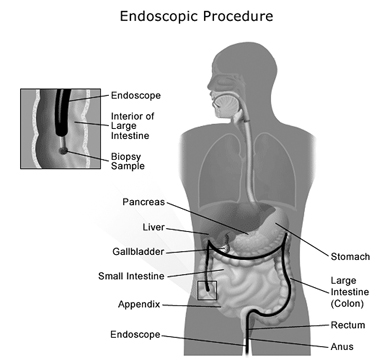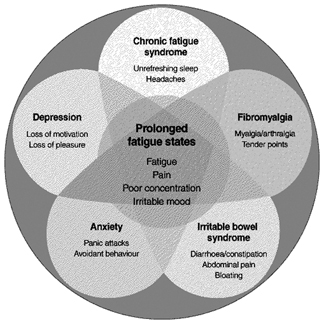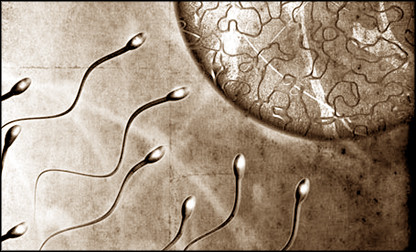|

Stress management - best way to combat IBS
Text and pix by Nilma DOLE

Dr. Karunasena Nanayakkara |

Dr. Rohana Siriwardana |
Dr. Karunasena Nanayakkara, the Consultant Gastrointestinal Surgeon
of the Kalubowila Teaching Hospital and his Assistant Dr. Rohana
Siriwardana spoke to the Sunday Observer about the lack of awareness of
the Irritable Bowel Syndrome.
Irritable Bowel Syndrome (IBS)
Irritable bowel syndrome is a functional gastrointestinal disorder,
Dr. Nanayakkara said, "IBS is also known as spastic colon which is a
functional bowel disorder detected by chronic abdominal pain,
discomfort, bloating, and change in bowel habits".
The doctor said that about 10% of the patients who come to the clinic
suffer from IBS and this trend is growing. "Most of those from the
affluent society tend to have IBS due to psychological problems like
stress," said Dr. Siriwardana. IBS tends to affect more women than men.
Symptoms
 Dr. Nanayakkara said that IBS symptoms differ from person to person
even though it starts with abdominal pain. "In some cases some patients
have constipation while others have diarrhoea or a combination of both",
"We notice that some may pass stools in various forms like ribbon or
pellets and we treat them according to their condition." "There is no
medical evidence to say that the disease is hereditary. There may also
be an urgency for bowel movement, a feeling of instability in the
bowels, bloating, abdominal distention or headache. "We highly recommend
for those over 50 years of age to seek prompt medical advice by
preferably doing an endoscopy", said Dr. Siriwardana. Dr. Nanayakkara said that IBS symptoms differ from person to person
even though it starts with abdominal pain. "In some cases some patients
have constipation while others have diarrhoea or a combination of both",
"We notice that some may pass stools in various forms like ribbon or
pellets and we treat them according to their condition." "There is no
medical evidence to say that the disease is hereditary. There may also
be an urgency for bowel movement, a feeling of instability in the
bowels, bloating, abdominal distention or headache. "We highly recommend
for those over 50 years of age to seek prompt medical advice by
preferably doing an endoscopy", said Dr. Siriwardana.
The warning signs of IBS can have drastic consequences if not treated
promptly meaning they will be long-term. Patients over 50 years of age
need to seek expert medical advice if they have weight loss, a family
cancer history or if the irstools are peculiar, warned Dr. Siriwardana.
Diagnosis
There is no specific laboratory or imaging test to diagnose IBS. "It
is sometimes difficult to pinpoint what could be wrong with a patient
because the symptoms vary. However, it should be emphasised that it is
not cancer-causing and can be treated because IBS can occur on and off",
said Dr. Nanayakkara. Patients should do a full blood count, tests on
the stools, ESR (erythrocyte sedimentation rate) and talk with a
psychologist.
Medical opinion
"We advise the general public to go to one doctor to diagnose and
havet the problem attended to then and there. Often these patients
suspect they might have cancer and the doctor doesn't treat it properly
so they go for a second opinion". Doctors are of the view that an
adequate knowledge on the part of patients and a good doctor-patient
relationship are also important. Dr. Nanayakkaa said.
Treatment
Although there is no cure for IBS, there are treatments to relieve
symptoms, including dietary adjustments, medication and psychological
interventions, Dr. Nanayakkara said, "The exact cause of IBS is not
known but the most common theory is that IBS is a disorder of the
interaction between the brain and the gastrointestinal tract". We can
use anti-spasm drugs to treat some cases of IBS but it should be
carefully monitored.
A good diet chart should be maintained with the results of what
triggers the condition, he noted
 "People should avoid fatty, oily and spicy food and shouldn't smoke,
drink alcohol or caffeine" warnd Dr. Nanayakkara. Most people can
control their symptoms by taking anti-diarrhoea medicines,
antispasmodics, or antidepressants, reducing stress, and changing their
diet. "People should avoid fatty, oily and spicy food and shouldn't smoke,
drink alcohol or caffeine" warnd Dr. Nanayakkara. Most people can
control their symptoms by taking anti-diarrhoea medicines,
antispasmodics, or antidepressants, reducing stress, and changing their
diet.
"Increase the fibre content in your diet gradually because some
people feel bloated and develop gastric complications if they increase
their fibre intake too quickly", said the doctor. Gas and bloating
usually improve as you get used to eating more fibre. The best way to
increase your fibre intake is to eat a wide variety of fibre rich foods.
How stress causes IBS
People who have IBS are prone to stress being mentally or emotionally
depressed triggering off colon spasms. The colon has many nerves that
connect it to the brain. Like the heart and the lungs, the colon is
partly controlled by the autonomic nervous system, which responds to
stress. These nerves control the normal contraction of the colon and
cause abdominal discomfort at stressful times. People often experience
cramps or "butterflies" when they are nervous or upset.
In people with IBS, the colon can be overly responsive even to slight
conflict or stress. Stress makes the mind more aware of the sensations
that arise in the colon, making the person perceive these sensations as
unpleasant.
The best way to combat IBS is stress reduction (relaxation), training
and relaxation therapies such as meditation, counselling and support,
regular exercises such as walking or yoga, elimination of stressful
situations in your life and adequate sleep.
IBS does not lead to more serious conditions in most patients but it
is a source of chronic pain, fatigue and other symptoms.
IBS is also regarded as a chronic illness that could dramatically
affect the quality of life.
************
Dr. Siriwardana's Comments on IBS
1. The affluent society tends to have IBS probably due to stress,
anxiety and lifestyle
2. Some may pass loose stools and mucous
3. Apart from bowel symptoms other non specific generalized symptoms
like headache, myalgia , generalized weakness is seen in about 30%
4. In the case of red signs, patient needs to be investigated further
by a specialist to exclude other possible pathologies which can be
dreadful if untreated
5. If a patient is over 50 years of age with a short history of
symptoms, anaemia, blood mixed with stools then it is a red sign
6. Doctors do investigations to exclude other possible conditions
that can give rise to similar symptoms
7. We advise IBS patients not to keep on shifting from one doctor to
another since IBS has its own natural history where sometimes it worsens
and some times it comes down
8. We don't want to prevent patients from seeking second opinion
especially when we face doubtful situations but we tell patients not to
go to many doctors for a small problem
************
Common symptoms of IBS:
* Bloating and gastric complications
* Mucus in stool
* Constipation
* Diarrhoea, especially after eating or first thing in the morning
* Feeling the need to have a bowel movement after you've already had
one
* Feeling a strong urge to have a bowel movement
* Abdominal pain and cramping that may go away after having a bowel
movement
************
Tips on controlling IBS:
* Consume a mixed diet and avoid high fat foods
* Drink plenty of water
* Have 6 small meals a day rather than 3 large ones
* Learn new and better ways to deal with your stress
* Avoid using laxatives which may weaken your intestines and make you
to be dependent on them
************
Stem cell study leads to breakthrough in understanding infertility
'Hidden stage of human development' is opened up by Stanford
University scientists
|

Understanding the details of how sperm and egg cells grow will
help scientists develop treatments |
Scientists have turned human stem cells into early-stage sperm and
eggs in research that promises to give doctors an unprecedented insight
into the causes of infertility.
The work will allow researchers to study human reproductive cells
from the moment they are created in embryos through to fully-mature
sperm and eggs.
Understanding the details of how sperm and egg cells grow will help
scientists develop treatments for people who are left infertile when the
process goes wrong. The research may also lead to treatments that can
correct growth defects before a child is born.
Genetic glitches that happen early in the growth of sperm and eggs
are a major cause of infertility in men and women. The process has been
practically impossible to study until now though, because the sex cells
form early on, before an embryo is two weeks old.
"This achievement opens a new window into what was only recently a
hidden stage of human development," said Susan Shurin at the National
Institute of Child Health and Human Development, which part funded the
research.
A team led by Renee Reijo Pera at Stanford University in California
developed a technique that turned human embryonic stem cells green when
they started growing into sperm and eggs.
After isolating the reproductive cells, the scientists worked out
which genes made them grow properly by switching different genes on and
off.
Writing in the journal Nature, the scientists describe how that one
gene, called DAZL, is involved in the formation of sex cells from the
start. Two related genes are switched on later to steer the cells to
full maturity.
The main significance of the work is not to attempt to generate
gametes for couples who do not produce them naturally.
Rather, the work describes a system in which various aspects of germ
cell development can be studied in a dish. In the current study, they
have gained insight into the function of three genes in which they
specialise."
Darren Griffin, a geneticist at the University of Kent, said the work
was important because it gave researchers a way to study human sperm and
egg development in a dish, instead of having to rely on tissues taken
from animals or "removing bits of people's gonads".
"In future, a range of genetic and environmental factors could be
studied, including the effects of pollutants on our fertility. Only
through understanding such factors at a basic scientific level can we
hope to develop novel diagnoses and therapies.
The potential is enormous," he said.
Allan Pacey, an andrologist at Sheffield University, said:
"Ultimately this may help us find a cure for male infertility.
Not necessarily by making sperm in the laboratory - I personally
think that it is unlikely - but by identifying new targets for drugs or
genes that may stimulate sperm production to occur naturally.
This is a long way off, but it is a laudable dream.
Guardian.co.uk
Weight loss eases sleep apnea symptoms
by Madeline ELLIS
It's well known that overweight adults are at greater risk for a
myriad of health problems and that losing weight can reduce that risk.
 Just a 10 percent reduction in weight can improve heart function,
lower blood pressure and levels of blood cholesterol and triglycerides,
and decrease the risk of diabetes and cardiovascular diseases. And new
research shows that obese people with sleep apnea who lose 10 percent of
their weight can significantly improve their symptoms and potentially
rid themselves of the disorder. Just a 10 percent reduction in weight can improve heart function,
lower blood pressure and levels of blood cholesterol and triglycerides,
and decrease the risk of diabetes and cardiovascular diseases. And new
research shows that obese people with sleep apnea who lose 10 percent of
their weight can significantly improve their symptoms and potentially
rid themselves of the disorder.
Gary Foster, director of the Center for Obesity Research and
Education at Temple University in Philadelphia, and researchers at four
other medical centers and universities analyzed data on 264 obese
patients with type 2 diabetes and sleep apnea in varying forms. The
participants were divided into two groups. One group participated in a
diabetes management program while the other group followed an intense
lifestyle treatment program that included a combination of a group
behaviour modification, a portion-controlled diet with liquid meal
replacements, and 175 minutes of weekly physical activity.
After a year, the treatment group had lost an average of 24 pounds,
or about 10 percent of their starting weight, compared with a one-pound
average weight loss in the other group. The treatment group also saw a
significant reduction in the number of sleep apnea episodes they
experienced; many moved to a less severe category, from moderate to mild
for example, and about 14 percent had complete remission of the
disorder. Men, those with severe apnea and those who lost the most
weight saw the greatest benefit. In sharp contrast, those in the second
group experienced a worsening of their sleep apnea symptoms.
"This is good news because it shows that a little bit of weight loss
can go a long way when it comes to improving sleep apnea," said Foster.
"And a reduction in sleep apnea has a number of benefits for overall
health and well-being."
Sleep apnea affects more than 18 million Americans and has the
potential for serious, life-threatening complications. People with sleep
apnea literally stop breathing for brief periods during their sleep,
usually for ten to twenty seconds but often for a minute or longer and
as frequently as 30 times or more per hour. People who are overweight or
obese are much more likely to have obstructive sleep apnea (OSA), the
most common form of the disorder, because excess weight can cause the
airway to collapse during sleep. "The soft palate in the back of mouth
falls down and blocks the airway," explains Dr. Mitchell Roslin, chief
of bariatric surgery at Lenox Hill Hospital in New York City. "When you
get to people with serious levels of obesity, it's virtually impossible
to find those without sleep apnea."
Sleep apnea often goes undiagnosed. Doctors usually can't detect it
during routine office visits and there are no blood tests for the
condition.
The majority of people who have sleep apnea aren't aware they have it
because it only occurs during sleep. Sleep apnea often results in
feelings of fatigue and excessive daytime sleepiness, since the ability
to reach deep, restorative sleep stages is impaired.
Untreated, sleep apnea can increase the risk for high blood pressure,
heart attack, stroke, obesity, diabetes and premature death. "It really
has tremendous detrimental effects on the cardiovascular system," Roslin
stressed.
Weight loss is often recommended for obese patients with sleep apnea,
but evidence for this recommendation has been limited, with most studies
being small, nonrandomized, and focusing on surgically induced weight
loss. "This is one of the first and certainly the largest study ever
conducted," Foster said. "It's been clear that obesity increases the
risk of sleep apnea but less clear that if obese people or people with
type 2 diabetes lost weight, it would result in significant improvements
in their sleep apnea-and it did."
Foster recommends that obese people who want to lose weight keep
track of what they eat, using portion-controlled meals such as Lean
Cuisine and Healthy Choice, and walk 30 minutes each day.
Healthnews.com
|

